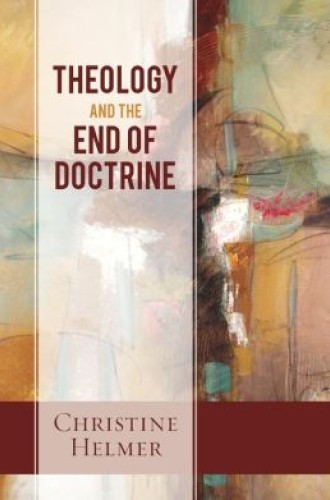Doctrine’s many lives
Christine Helmer’s important book has an unusual literary feature. Its titular character, Christian doctrine, is killed off not once, but twice. Or at least the death of doctrine is “twice pronounced,” with each supposed death attracting a different set of coroners who ascribe its demise to very different causes.
Helmer chronicles two historical moments when it was declared that a theological strategy had sold Christian faith down the river and made doctrine impossible. But Helmer also argues persuasively for a different end to doctrine—end in the sense of “purpose.” As long as its proper end is kept in sight, Helmer maintains, Christian doctrine will turn out to be resuscitatable, even vital.
The discussion of doctrine’s purpose occupies the second part of the book. Prior to that, Helmer chronicles the two moments in Christian theology when doctrine’s death was declared. The first time it was said to be Friedrich Schleiermacher’s fault, and anyone who has spent time in Barthian or postliberal theology will be familiar with that particular postmortem account. Schleiermacher, we are meant to believe, put an end to Christian doctrine by turning it into a function of the individual’s prelinguistic interiority, rather than of the biblical text. Theologians like Emil Brunner, Karl Barth, and George Lindbeck signed the arrest warrant and have duly held Schleiermacher’s work in maximum-security confinement ever since.





